- Learning time
- 30 minutes
- First play time
- 150 minutes
Faiyum
Designed by: Friedemann Friese
In Faiyum, the players turn the Egyptian crocodile-infested wilderness into a diversely populated landscape of settlements, towns and various farms, eventually forming the titular city. But although the players work together on the same board, you are actually in competition; to score the most points and win. How? By playing cards.
Everyone starts with a hand of identical cards, but paths will diverge during the game as players purchase more. On your turn, you either play a card, laying it on the table, or buy a card from the display to add to your hand. The display has the four cards to the left available for purchase, and the four to the right potentially dropping to the purchase area: whenever new cards are added to the display they are arranged by number order, meaning cards may even be available for a short time before rising to the unavailable area again.
Meanwhile, cards are being played, which is the nub of Faiyum. There are many different cards that do many different things on the board, but fortunately most of them are fairly easy to decode: Farmers gather resources (wheat, grapes stone) Settlements may be built, Roads laid, and so on. Some cards have a cost to pay in resources, but all bring rewards: cash (for cards) more resources, points, or a mixture. The further through the numbered deck the players get, the more powerful the cards become as the civilisation growing on the board develops. It’d be impossible to list all the cards here, but the game has a pretty simple iconography to it that’s easy to follow. You might get points for connecting settlements, turning settlements into towns, selling goods at a Market and so on. Throughout Faiyum there’s a sense of gentle escalation, as your cards increase in number.
But at some point you’ll be low – or out of – cards. At this point you can take the thrillingly-titled administration action, which involves returning some, or all, of them to your hand. Your played cards form a row or column on the table, and the top three are free to return to your hand, but you can also pay a coin per card to return the cards beneath them as well. Whenever anyone takes the administration action, two cards are lost from the purchase area on the board, hastening the end of the game: the latter part of the deck is heavy with Disaster cards: these aren’t played, but can be taken by any player choosing to finish their game and take no further actions – some of them score points. As soon as the fourth disaster card is revealed, the game ends.
The guru's verdict
-
Take That!
Take That!
Fairly low; there's no direct combat to speak of but elements of the game - including the purchase of cards, or occupation of spaces on the board - can feel like small hand-grenade moments.
-
Fidget Factor!
Fidget Factor!
High on a first play, but for all Faiyum's slightly abstracted take on the development of a city, it's relatively accessible, and quick-moving once players understand the iconography and the rhythm of playing and recalling cards.
-
Brain Burn!
Brain Burn!
Faiyum's board is a tapestry of what the cards are doing - the goal of the game is to score the most points, so the challenge is to look for ways that the cards you gather compliment each other.
-
Again Again!
Again Again!
If you enjoy Faiyum's take on the birth of an (ancient) city, then there are countless ways the cards combine, and the opportunities on offer on the board.

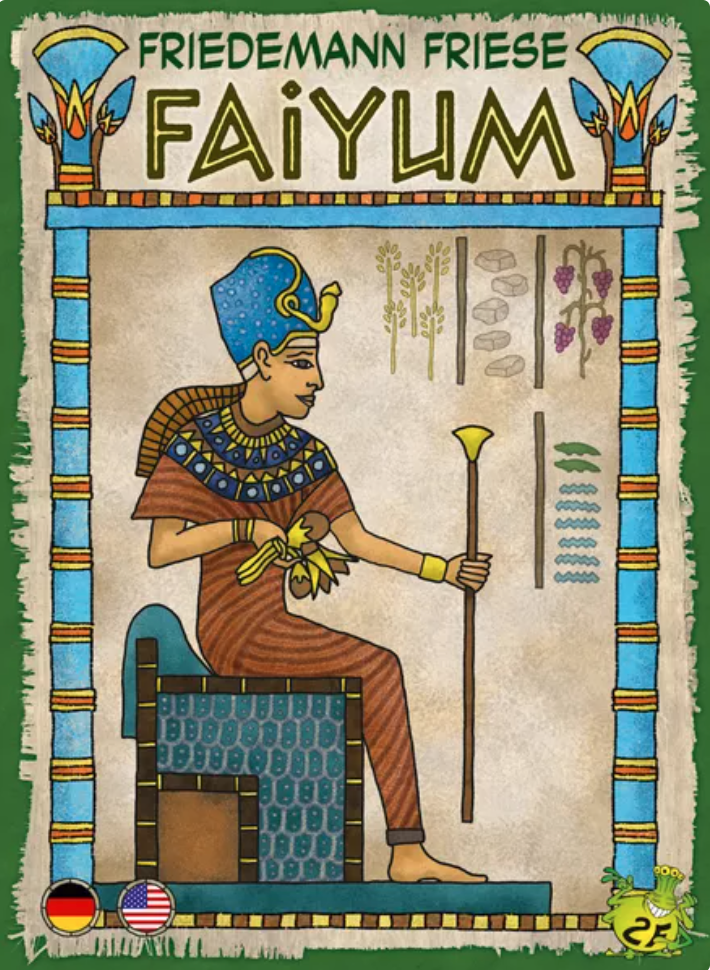
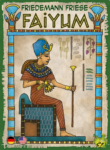
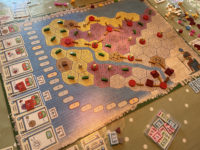
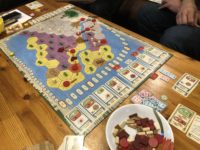
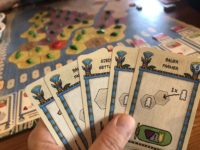
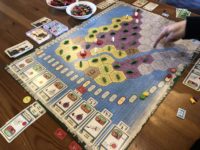
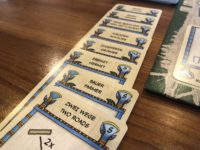
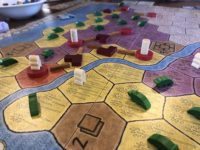
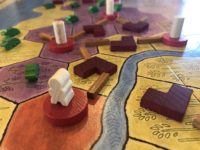
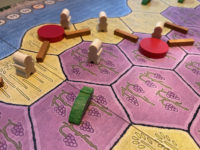



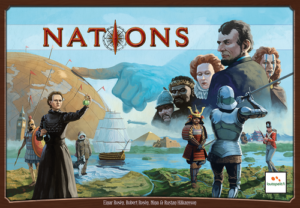
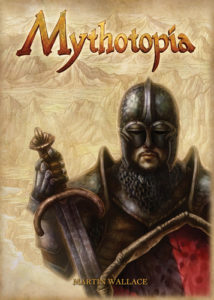
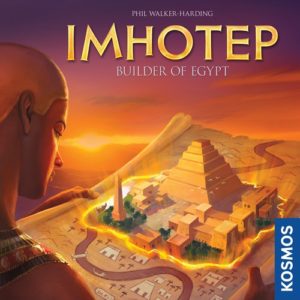
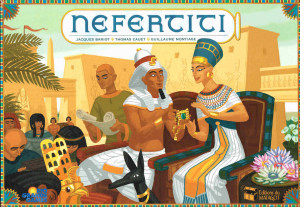
Sam says
Many civilisation-building games go for epic narratives, war, drama. Comparatively Faiyum feels gentle, a [simple_tooltip content='Players start with a small deck of cards, but improve it during the game']deck-building[/simple_tooltip] game of initially small increments, juggling much-needed income with advancements on the score-track. Improving your hand is really where the game shines, however, as you construct sequential turns to bring rich rewards. We've not covered the nitty gritty of the rules here - there are also workers that populate the board, but occasionally leave it too - but tried to give a sense of the how the game feels: a fairly abstract experience on the board, perhaps, but a rather more-ish one in terms of the cardplay, that I enjoyed a fair bit and hope to explore further.